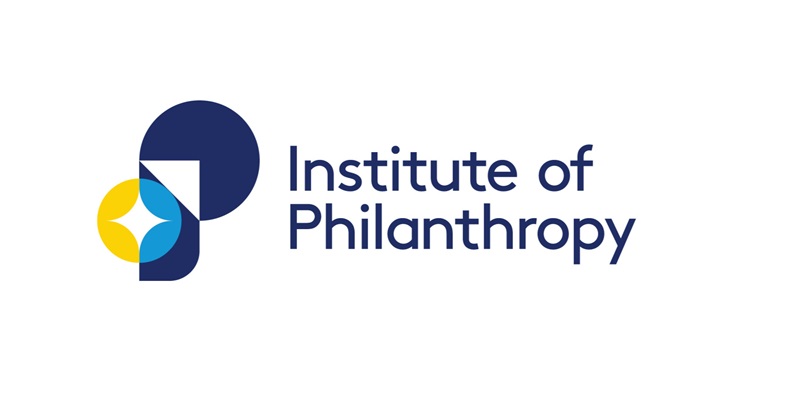
October 25:Gairdner Global Health Symposium
.tmb-cfthumb_fb.jpg?Culture=en&sfvrsn=db0f0ffb_1)
2024 Gairdner Global Health Symposium
Pandemic Preparedness: From Vaccine Technology to Global Health Policy
Inspired by the groundbreaking work of Dr. Gagandeep Kang, the 2024 John Dirks Canada Gairdner Global Health Award laureate, this Symposium will explore the cutting-edge innovations and critical insights needed to tackle future pandemics, with a focus on vaccine technology and the policies that shape global health responses.
Click Here to Register for this half-day Symposium on Friday, October 25, 2024.
Can't attend in person? Join us all week via livestream at bit.ly/WatchGairdnerScienceWeek
This event is presented in partnership with the Institute of Philanthropy
The Institute of Philanthropy was established in September 2023 through a strategic seed grant of HK$5 billion (US$640 million) from The Hong Kong Jockey Club and its Charities Trust. Established as an independent “think-fund-do” tank for China and Asia, the IoP is dedicated to promoting philanthropic thought leadership and enhancing sector capabilities at local, regional and global levels in collaboration with fellow funders. It seeks to provide an Asia-based platform bringing global stakeholders together to promote the betterment of societies everywhere.
Schedule
9:00 AM - Opening Remarks from Janet Rossant, Gairdner President and Scientific Director
9:03 AM - Chair Remarks- Leslie Madden, Head of Regulatory Sciences, Moderna
9:06 AM- “From Vaccine Policy to Global Health Policy: health policy for the future, its time to get in front of the puck”
Prof. Jane Halton AO PSM, Professor of Health Policy and Health Security, Australian National University Chair Coalition for Epidemic Preparedness Innovations (CEPI).
Arguments about how to manage existing technologies and health products have been a major stumbling block to reaching global consensus on pandemic preparedness, a global treaty and equitable access. However much of this debate is fighting the last war's battles. We need to look to 'where the puck is going' in respect to vaccine design, testing, technologies and manufacturing to ensure agility and above all else equitable access.
9:26 AM - "Preventing pandemics at source: Spill-over prevention”
Prof. J.S. Malik Peiris MBBS, DPhil (Oxon), FRCPath, FRS, 2021 John Dirks Canada Gairdner Global Health Awardee; Director, Hong Kong Jockey Club Global Health Institute; Professor of Virology, School of Public Health, The University of Hong Kong.
Pandemics emerge when animal viruses spillover to humans and establish sustained transmission within human populations. Anthropogenic activities are increasing the probability of these spillovers and thus, increasing risk of pandemics. While COVID-19 had significant impacts on morbidity, mortality, social well-being and economies globally, future pandemics may well be even more severe. Much attention is currently rightly being placed on counter-measures for pandemic response (vaccines, antivirals, diagnostic) but attention to reducing risk of spillovers (“prevention at source”) is not receiving comparable attention. Intensive animal husbandry practices which involve.
9:48 AM - "'The Road to a Billion Vaccinated People’, covering India’s COVID-19 story and lessons for future pandemics"
Speaker: Gagandeep Kang MD, PhD, 2024 John Dirks Canada Gairdner Global Health Awardee Adjunct Professor, Christian Medical College, Vellore, India; Director-Enteric, Diagnostics, Genomics and Epidemiology, Bill and Melinda Gates Foundation; Seattle, USA; Vellore, IN.
Presentation on Dr. Kang’s award-winning work.
10:15 AM -“WTF: Why The Floor might hold the key to preventing outbreaks and monitoring respiratory virus activity”
Speaker: Dr. Michael Fralick MD, PhD, MSc, FRCPC, 2024 Gairdner Early Career Investigator; Clinician Scientist, Sinai Health & Lunenfeld-Tanenbaum Research Institute; Associate Professor, Faculty of Medicine, University of Toronto
10:30 AM - Break
10:42 AM - Chair Remarks
10:45 AM - “Pandemic, Endemic and Zoonotic: three avatars of respiratory viruses”
Dr. Kanta Subbarao MBBS MPH, Canada Excellence Research Chair, Biology and Control of Zoonotic and Pandemic Respiratory Viruses, Department of Microbiology and Immunology, Université de Laval; Quebec City, CA.
Influenza A viruses and coronavirus infections in humans occur in three scenarios: zoonotic, seasonal or pandemic. To explore these scenarios, our research focuses on the biology of virus infection and airborne spread of influenza and corona- viruses. These viruses primarily infect the respiratory tract. We have established cell culture models that represent different parts of the human respiratory tract, including nasal epithelial cells, large-airway and small-airway epithelial cells, and embryonic stem cell-derived type II alveolar cells for the study of respiratory viruses. In addition, because other organ systems are involved in COVID-19, we established human stem cell-derived cardiac, kidney and placental cultures to explore molecular mechanisms of SARS-CoV-2 biology. We have established methods to recover infectious virus from air samples that will provide insights into airborne transmission. Our data on respiratory viruses provide novel insights into virus biology, rational drug combinations for treatment and airborne spread that have implications for global public health.
11:05 AM - "How human and mouse data have taught us how to make an IgA response to SARS-CoV-2 and Rotavirus”
Dr. Jen Gommerman PhD, Professor and Chair, Department of Immunology, University of Toronto and Canada Research Chair in Tissue Specific Immunity; Toronto, CA.
IgA antibodies are produced at mucosal surfaces including the oral and nasal cavities, the intestinal, respirator and vaginal tract. In a sense, IgA is unusual in that it is a component of the adaptive immune system that exists outside of the body. This means that IgA can play a very important role in providing sterilizing immunity to prevent pathogen infection and limit transmission. Despite the importance of IgA in protecting the host, the signals that govern the formation of IgA producing cells remain ill-understood. Moreover, why IgA responses to some pathogens are long lived (e.g, Rotavirus) while others are short-lived (e.g., SARS-CoV-2) is not known. The Gommerman lab uses a combination of animal models and human samples to uncover the mysteries of IgA immunity. Knowledge on the “rules of engagement” for how IgA responses are generated and maintained is important for design of vaccines that have the capacity to protect the host against infection.
11:27 AM - "Global Immunizations and the Antipoverty Vaccines: The Science vs The Anti-science”
Prof. Peter Hotez MD PhD, Texas Children's Hospital Endowed Chair in Tropical Pediatrics Professor and Dean, National School of Tropical Medicine, Baylor College of Medicine; Houston, TX, USA.
Prof. Hotez will discuss how we both address vaccine equity and a rising an aggressive globalizing antiscience empire. Globally, our Texas Children’s Hospital Center for Vaccine Development is accelerating a low-cost recombinant protein vaccines for global health including COVID vaccines released in India and Indonesia, where almost 100 million doses have been administered, and now a new human hookworm vaccine is showing promise to become the second parasitic disease vaccine after the malaria was licensed for the African Continent. In the US substantial progress has been made in vaccinating the population versus COVID19, with the important exception of an estimated 200,000 unvaccinated Americans who lost their lives because refused COVID19 vaccinations. This antivaccine defiance has evolved over the last 20 years beginning around disinformation claiming vaccines cause autism, but now increasingly around a framework of health freedom or medical freedom. The health freedom movement is now a political one espoused by far-right elected officials, news outlets, contrarian intellectuals or pseudointellectuals, and even extremist groups. It is a complex ecosystem that targets both biomedical science and scientists with dangerous consequences for the nation not only around vaccinations but also other health and science interventions. It has begun to globalize to Canada, Western Europe, and increasingly low- and middle-income countries.
11:50 AM - Roundtable Discussion
Roundtable Chair: Dr. Matthew Miller, PhD, Director, Michael G. DeGroote Institute for Infectious Disease Research (IIDR), Faculty of Health Sciences, McMaster University
Discussion Participants: Jane Halton, Malik Peiris, Gagandeep Kang, Kanta Subbarao, Jen Gommerman, Peter Hotez, Michael Fralick
12:40 PM - Closing Remarks

.tmb-cfthumb_fb.png?Culture=en&sfvrsn=d36bbfeb_1)
.tmb-cfthumb_fb.png?Culture=en&sfvrsn=ef97ca1f_1)
.tmb-cfthumb_fb.png?Culture=en&sfvrsn=8d1149aa_1)






.tmb-cfthumb_fb.jpg?Culture=en&sfvrsn=f0df38d_1)



.tmb-cfthumb_fb.jpg?Culture=en&sfvrsn=9c46e60a_1)














.tmb-cfthumb_fb.png?Culture=en&sfvrsn=277c108b_1)








.tmb-cfthumb_fb.png?Culture=en&sfvrsn=8cb92da_1)







-(2)c65ff49d-b739-4bd1-9207-dc21bea66720.tmb-cfthumb_fb.png?Culture=en&sfvrsn=b8e7d6d7_1)

.tmb-cfthumb_fb.png?Culture=en&sfvrsn=961383a5_1)
.tmb-cfthumb_fb.png?Culture=en&sfvrsn=c8422350_1)

-(6).tmb-cfthumb_fb.png?Culture=en&sfvrsn=87e59037_1)